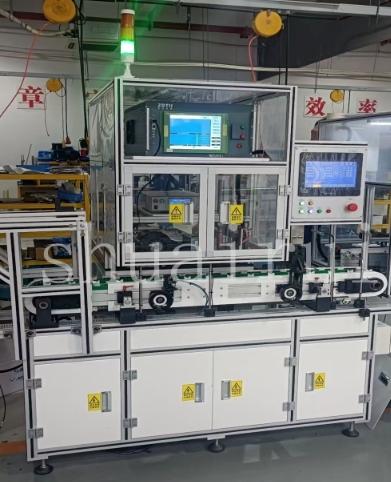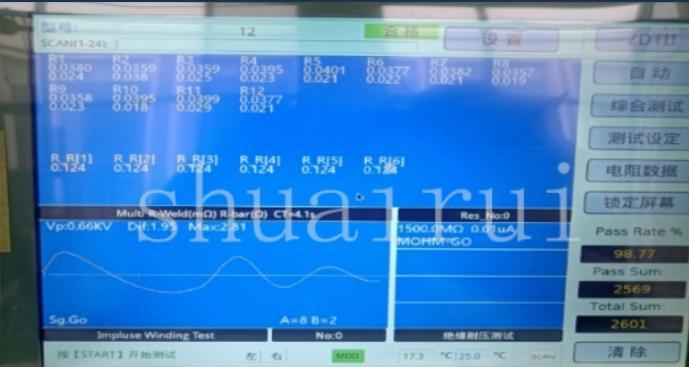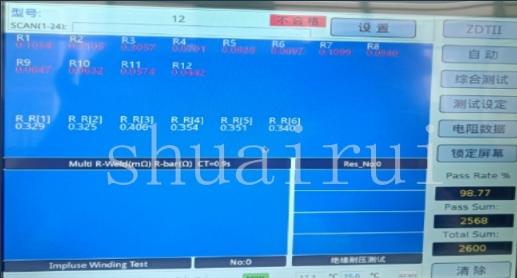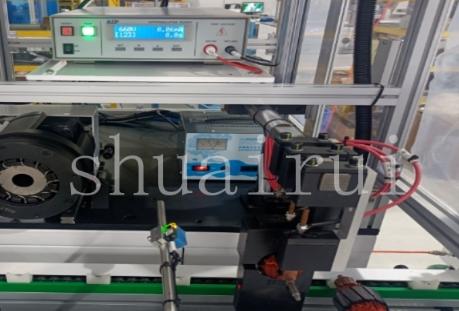 English
English Español
Español  Português
Português  русский
русский  Français
Français  日本語
日本語  Deutsch
Deutsch  tiếng Việt
tiếng Việt  Italiano
Italiano  Nederlands
Nederlands  ภาษาไทย
ภาษาไทย  Polski
Polski  한국어
한국어  Svenska
Svenska  magyar
magyar  Malay
Malay  বাংলা ভাষার
বাংলা ভাষার  Dansk
Dansk  Suomi
Suomi  हिन्दी
हिन्दी  Pilipino
Pilipino  Türkçe
Türkçe  Gaeilge
Gaeilge  العربية
العربية  Indonesia
Indonesia  Norsk
Norsk  تمل
تمل  český
český  ελληνικά
ελληνικά  український
український  Javanese
Javanese  فارسی
فارسی  தமிழ்
தமிழ்  తెలుగు
తెలుగు  नेपाली
नेपाली  Burmese
Burmese  български
български  ລາວ
ລາວ  Latine
Latine  Қазақша
Қазақша  Euskal
Euskal  Azərbaycan
Azərbaycan  Slovenský jazyk
Slovenský jazyk  Македонски
Македонски  Lietuvos
Lietuvos  Eesti Keel
Eesti Keel  Română
Română  Slovenski
Slovenski  मराठी
मराठी  Srpski језик
Srpski језик
Rotor testing: precision testing, quality selection
2024-12-17
In the rotor production process, the testing process is the key to ensure its excellent performance. The rotor testing machine process mainly includes resistance testing, turn-to-turn testing and high-voltage testing.

Among them, the resistance and turn-to-turn tests work together to check the winding performance. When qualified, the resistance value is accurate, the turn-to-turn insulation is good, and the waveform is normal, ensuring stable current transmission and conversion.

If it is unqualified, the resistance is abnormal, and the motor operation will be seriously affected.

High-voltage testing is a severe challenge to the insulation strength of the rotor. Qualified rotors can calmly cope with high-voltage shocks and have reliable insulation.

Unqualified ones will cause insulation breakdown under high voltage, causing safety hazards.

Through these comprehensive and precise tests, high-quality rotors are accurately screened to lay a solid foundation for the excellent performance of the motor.



